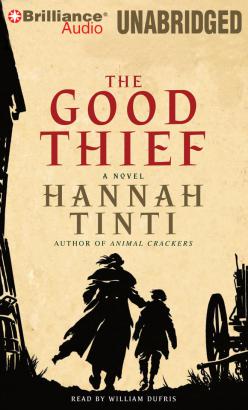View Purchase Options

Good Thief, The
By: Hannah Tinti
description
Richly imagined, gothically spooky, and replete with the ingenious storytelling ability of a born novelist, The Good Thief introduces one of the most appealing young heroes in contemporary fiction and ratifies Hannah Tinti as one of our most exciting new talents.
NAMED ONE OF THE BEST BOOKS OF THE YEAR BY
The New York Times Book Review • The Washington Post • San Francisco Chronicle • Kirkus Reviews
Winner of the Center for Fiction First Novel Prize and an American Library Association Alex Award
Twelve year-old Ren is missing his left hand. How it was lost is a mystery that Ren has been trying to solve for his entire life, as well as who his parents are, and why he was abandoned as an infant at Saint Anthony's Orphanage for boys. He longs for a family to call his own and is terrified of the day he will be sent alone into the world.
But then a young man named Benjamin Nab appears, claiming to be Ren's long-lost brother, and his convincing tale of how Ren lost his hand and his parents persuades the monks at the orphanage to release the boy and to give Ren some hope. But is Benjamin really who he says he is? Journeying through a New England of whaling towns and meadowed farmlands, Ren is introduced to a vibrant world of hardscrabble adventure filled with outrageous scam artists, grave robbers, and petty thieves. If he stays, Ren becomes one of them. If he goes, he's lost once again. As Ren begins to find clues to his hidden parentage he comes to suspect that Benjamin not only holds the key to his future, but to his past as well.
Praise for The Good Thief
"Every once in a while—if you are very lucky—you come upon a novel so marvelous and enchanting and rare that you wish everyone in the world would read it, as well. The Good Thief is just such a book—a beautifully composed work of literary magic."—Elizabeth Gilbert, author of Eat, Pray, Love
"Darkly transporting . . . [In] The Good Thief, the reader can find plain-spoken fiction full of traditional virtues: strong plotting, pure lucidity, visceral momentum and a total absence of writerly mannerisms. In Ms. Tinti's case that means an American Dickensian tale with touches of Harry Potterish whimsy, along with a macabre streak of spooky New England history."—New York Times






